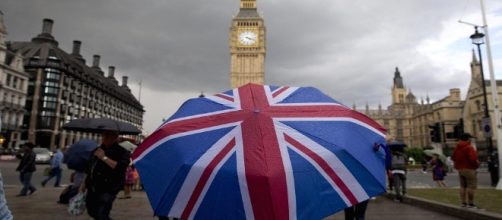The last Week In Politics has been busy with The Queen’s Speech making its way through parliament with every amendment being voted against by the Conservative-DUP pact. We have seen further fallout from the Grenfell Tower fire and the local council’s inability to handle the aftermath of the disaster with council leader, Nicholas Paget-Brown resigning. Along with the start of Brexit negotiations, the Conservatives have had little time to reflect over the election results.
Theresa May said repeatedly that they were a government ‘getting on with the job’.
The job though has been a bad one at best. The hastily put together government have begun Brexit negotiations unprepared and they have shown in their voting how little they care for society already.
The Queen’s Speech
There were 3 amendments tabled, two from Jeremy Corbyn and one from Chuka Umunna. The first amendment on Wednesday was to end the public sector pay rise cap, which has been capped at 1% since 2010. This was the first test for the Theresa May’s Conservative-DUP. The amendment was voted down by just 14 votes, with no Conservative MP rebelling and the DUP voting with them. Estimates suggest that those working in the public sector will be earning £2,500 less than they were in 2010.
The second amendment was a key Labour pledge, the end of austerity.
Despite Theresa May’s insistence that ‘austerity was over’ after the election result, the amendment was defeated by the Conservative-DUP pact, 309 ayes to 323 noes. The third amendment was tabled by Chuka Umunna, entailed for the possibility of remaining part of the single market and the customs union after exiting the EU. This was defeated with just 49 Labour MPs voting in favour, the rest abstaining. The Queen Speech itself went through unscathed, 323 ayes to 309 noes, the Conservative-DUP holding out for now.
The government are continuing to pursue their austerity despite senior figures suggesting that they would drop it after the election disaster. The vote against ending the public sector pay rise cap underlines the Conservatives careerist attitudes and is highlighted when you place focus on Bournemouth East MP, Tobias Ellwood.
Who was rightly praised for his assistance during the London Bridge terror attack. Mr Ellwood was full of praise for our public service workers, labelling them heroic for their work as they risked their lives to protect MPs and civilians alike. Yet he voted against giving them a pay rise.
Chuka Umunna’s amendment was pointless and only allowed media rhetoric to claim that there were still deep divisions in the Labour Party, which took the focus off the Conservatives failure to give our public servants a decent wage for the work they do.
Conservative-DUP pact and Brexit
There has been a lot of focus on the deal with the DUP and what it will mean for the peace agreement in Northern Ireland and the current political stand-off with Sinn Fein.
The Conservatives managed to find £1.5 billion to give to the DUP for infrastructure in Northern Ireland, but if this was in a third world African nation, this would be called a bribe. Plus, the government are meant to be unbiased during power-sharing talks between Sinn Fein and the DUP.
Brexit negotiations started with David Davis U-turning on day one over the sequencing of negotiations, the order in which aspects are negotiated. First is the exit agreement and the EU and the UK will want sufficient progress on this, which includes the Irish border, money, citizenship etc. before engaging in the second area, the relationship between the UK and the EU, especially in terms of trade. Supporters called this a ‘compromise’ however, the government didn’t get anything out of it.
Others called it a ‘concession’ but this implies they had no choice. This was nothing but a capitulation from the government, with Juncker succinctly replying “no” when asked do you have any idea what the UK wants from Brexit?

